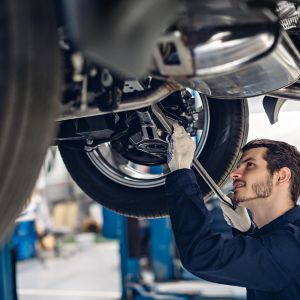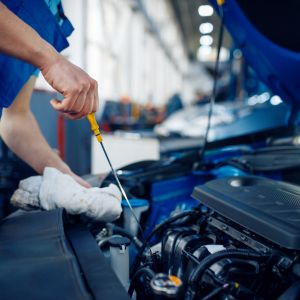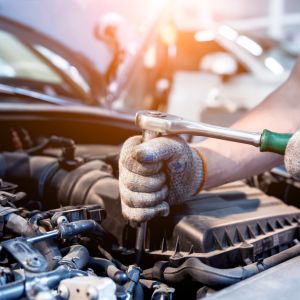Staying on top of your car’s service schedule is crucial for maintaining its safety, performance, and longevity. Regular maintenance ensures that any potential issues are identified and addressed early on, reducing the risk of breakdowns and accidents on the road. It also helps improve fuel efficiency and keep the car running at its best.
Skipping maintenance can lead to decreased performance, increased wear and tear, and the need for more costly repairs in the future. Keeping up with the recommended service schedule can also help maintain the car’s warranty, increase its resale value, and provide peace of mind while driving. Overall, investing in regular car maintenance is a smart choice for car owners.
The importance of keeping up with your car’s service schedule

Keeping up with your car’s service schedule is important for several reasons:
1. Safety: Regular maintenance can help identify and fix potential safety issues, such as worn brakes or worn tires before they become a problem on the road.
2. Performance: Regular maintenance helps keep your car running at peak performance, improving fuel efficiency and ensuring smooth operation.
3. Prolonging lifespan: By keeping up with regular maintenance, you can help extend the lifespan of your vehicle, as well as reduce the likelihood of costly repairs down the road.
4. Warranty protection: Following the manufacturer’s recommended service schedule can also help maintain the warranty on your car. Neglecting regular maintenance can void your warranty and leave you responsible for the cost of repairs.
5. Resale value: Maintaining a complete and up-to-date service record can increase the resale value of your car, as buyers will see that it has been properly taken care of.
In conclusion, keeping up with your car’s service schedule is essential for the safety, performance, longevity, and value of your vehicle. It also helps ensure that you are driving a reliable and well-maintained car, giving you peace of mind on the road.
Common services that should be performed during regular car maintenance

Regular car maintenance typically includes a range of services aimed at ensuring the proper functioning of the vehicle and extending its lifespan. Some common services include:
Oil Changes: Oil is the lifeblood of the engine, and regular oil changes help remove contaminants and ensure that the engine is properly lubricated.
Tire Rotations: Regular tire rotations can help extend the life of your tires and ensure even wear, improving handling and fuel efficiency.
Brake Inspections: Brakes are a critical safety component, and regular inspections can help identify worn brake pads or other issues before they become dangerous.
Battery Checks: Regular battery checks help ensure that the battery is properly charged and functioning, reducing the risk of being stranded with a dead battery.
Fluid Level Checks: Regular checks of fluid levels, such as engine oil, transmission fluid, coolant, and power steering fluid, can help identify leaks or low fluid levels before they become serious problems.
Filter Replacements: Regular replacement of air filters, fuel filters, and cabin air filters can help improve air quality and ensure proper engine performance.
Multipoint Inspections: Many auto shops offer comprehensive multipoint inspections that check various components of the car for wear and tear, such as suspension, steering, and exhaust systems.
In conclusion, regular car maintenance involves a range of services aimed at keeping the car running smoothly, improving its performance and safety, and extending its lifespan. It is important to follow the manufacturer’s recommended service schedule and to address any issues that arise promptly.
How often should I take my car in for regular maintenance?

The frequency of regular car maintenance depends on several factors, including the make and model of the car, driving habits, and environmental conditions. Here are some general guidelines:
Oil Changes: Most car manufacturers recommend an oil change every 5,000 to 7,500 miles or every six months, whichever comes first. However, this can vary based on driving conditions and the type of oil used.
Tire Rotations: Tire rotations should be performed every 5,000 to 7,500 miles or every time you have your oil changed, whichever comes first.
Brake Inspections: Brake inspections should be performed at least once a year or when you hear any unusual noises or feel any vibrations when braking.
Battery Checks: Battery checks should be performed annually or as needed, such as when you notice any issues with starting the car.
Fluid Level Checks: Fluid level checks should be performed at least twice a year or when you notice any issues, such as leaks or low fluid levels.
Filter Replacements: Filter replacements should be performed according to the manufacturer’s recommendations, which can range from every 12,000 to 15,000 miles.
Multipoint Inspections: Comprehensive multipoint inspections should be performed at least once a year or when you notice any issues with the car’s performance.
It is important to consult the owner’s manual for the manufacturer’s recommended service schedule and to have the car inspected if you notice any issues, even if it is not time for regular maintenance. Regular maintenance helps ensure the proper functioning of the vehicle, improving safety and performance, and prolonging its lifespan.
Frequently Asked Questions
Q1. Why is it important to keep up with my car’s service schedule?
Ans: Regular car maintenance helps ensure the proper functioning of the vehicle, improving safety and performance, and prolonging its lifespan.
Q2. Is there any difference between the regular maintenance schedule for new cars and older cars?
Ans: Yes, older cars may require more frequent maintenance due to wear and tear.
Q3. What happens if I don’t follow my car’s recommended service schedule?
Ans: Skipping regular maintenance can result in decreased performance and fuel efficiency, increased risk of breakdowns and accidents, and potentially costly repairs in the future.
Q4. How often should I take my car in for regular maintenance?
Ans: It varies based on the make and model of the car, driving habits, and environment. Check the owner’s manual for the manufacturer’s recommendations.
Q5. What are some common services that should be performed during regular car maintenance?
Ans: Common services include oil changes, tire rotations, brake inspections, battery checks, and fluid level checks.
Q6. Can skipping regular car maintenance lead to more costly repairs in the long run?
Ans: Yes, skipping regular maintenance can lead to bigger problems that can be more expensive to repair in the long run.

